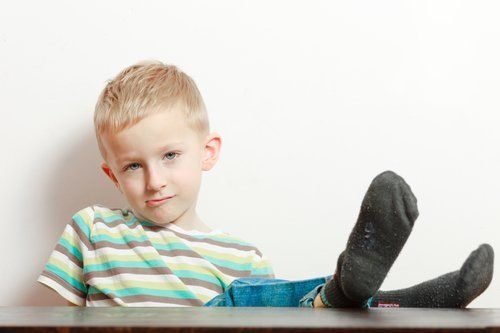My child is just so naughty! Will the arrival of a new sister make him even worse?
Top tips to address misbehaviour and prepare for change
“We have two boys, four and six and the young one is just so naughty. The six-year-old is easy and responsible. We are expecting a daughter in March and I am worried that a new sibling may just make our younger son even more difficult to handle “.
We can feel quite frustrated and overwhelmed when our children misbehave. It can be helpful to think about misbehaviour or “mistaken behaviour” as we prefer to call it, as indicating that a need is not being met. We can think of the behaviour as a cry for help. The most common needs are for attention and appreciation. Here we look at four things that you could try that will help improve your child’s self-esteem –in turn he will feel more appreciated and connected and more likely to cooperate.
1. Build self-esteem with positive language. Use descriptive praise to ensure that your child feels noticed and valued for what he does and most importantly for who he is. Noticing and acknowledging the things he gets right changes the mood, gives him positive attention and boosts his feeling of self-worth. Giving attention to positive behaviour gets our children into the habit of doing the right thing, the cycle continues and the behaviour improves: “You played so kindly with Freddie just now. I saw that you remembered to use your words to ask him for a turn with the tractor.” “You used your indoor voice. That takes great self-control.”
Take a moment and observe your son and write down all things that you love about him. Changing our often-subconscious label for our children can change our approach and enable us to respond with empathy rather than react with critiscm or despondency. Rather than thinking of him as the “naughty” one where we will be focused on all the things he gets wrong, try thinking of him as “spirited” or “impulsive” and a child who has yet to develop or learn to use words to express his needs. Our expectation of behaviour can all too easily become a self-fulling prophecy so speak your intended outcome.
2. One on one time . Our time and love are the same thing to a child. We need to give them our full undivided attention. We recommend ten minutes a day of one-to-one child directed non-screen time. Perhaps a game he loves, reading together or a little rough and tumble, the value of which we set out below. We all lead busy lives but this small investment can improve your relationship, boost his self-esteem and in turn, improve his behaviour. How powerful is the message that ‘nothing is more important than the time I spend with you’?
3. Rough and tumble. A little wrestling is not only much loved by Dad’s (usually Dad’s but Mum’s can too!) but also helps children developmentally. According to researchers from Newcastle University, high-quality physical play is linked to fewer emotional difficulties and better self-regulation in children – addressing both emotion and brain power. This interaction promotes bonding (attachment, safety and comfort) as well as exploration and risk taking. Although the findings show the benefits with girls as well as boys, this is a positive way to teach boys about their strength and how to control it. Clearly you need a few ground rules and the parent needs to carefully read the child. If things are going too far, stop the game and revisit the rules. “ What are our rules about protecting our bodies?”
4. Set up for Success - We believe in proactive parenting rather than reactive parenting. We think that it is much better to prepare our children to get things right rather than allow things to go wrong and react rather than respond appropriately. ‘Failing to plan is planning to fail!’ Your four-year-old might love a little role play as doing rather than just talking is a very powerful and effective way of learning. A role play with a stuffed animal or a doll as the new baby sister could be great fun. You will be spending quality time with your child while preparing him for how he might feel when a new sibling arrives. You might try changing a nappy together. There are fabulous children’s books about having a new baby sister or brother that you could read together.
It’s sometimes tempting to spring surprises on our children so they don’t worry about what is going to happen. As counter-intuitive as it may seem, research shows that for the majority of children, preparing them with a great deal of talk of forthcoming changes is the most effective way to ensure a smooth transition for them, and in turn, for you and the rest of the family.
So, take the time to set things up so that your child has a greater likelihood of getting things right. Talk about the forthcoming arrival with both children, role play and do it a lot, not just once. Really get them used to the idea and the important part that they will play when their new sibling arrives. The investment in that time together, the positive focus that builds his self-esteem and a little planning, are all effective ways to increase your bond, meet his need for attention and you will likely see the behaviour improving in the short term and hopefully embracing the new arrival when the time comes.

